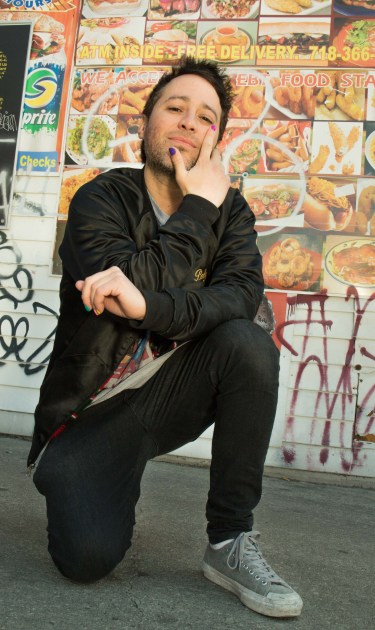The darker the times, the brighter AJ Dávila‘s outlook becomes — that’s the goal, anyway. For the Puerto Rican musician, staying positive is his primary defense against getting stuck in the myriad mires of now.
“You have all these bad things surrounding everything…Of course it’s going to affect you in some way, but imagine, if all the things are happening, and you get too depressed and you have a bad attitude, that shit is going to drown you,” he says. “It’s going to absorb you and make you miserable. So I always try to have a positive attitude — it’s my protection from all the bullshit that’s going on.”
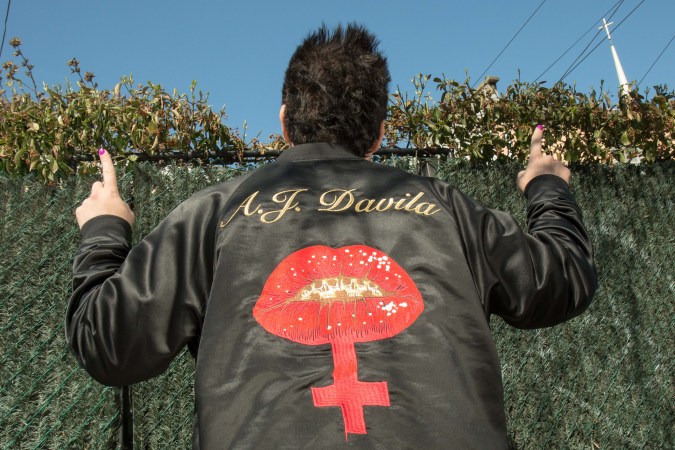
Granted, it’s not so simple for everyone to opt out of pain for joy instead. A positive outlook is sometimes a privileged one; the “bad things” AJ references, we know, vary greatly in intensity from person to person. Under no circumstances should anyone be chastised for their lack of cheer — their situation is nobody’s business but theirs. In AJ’s case, however, the keep-your-chin-up strategy works. And it’s what defines his latest release, El Futuro, out on May 5.
His third in as many years, El Futuro embodies that ideal end result with unabashedly upbeat melodies, bright and blissful guitar lines, and even straightforward lyrical motivation. AJ’s ethos is pervasive throughout, but no track represents it better than “Beautiful,” the self-love anthem AJ delivered alongside a party-fueled video a few months ago. That opener gives way to “17,” another euphoric number — a celebration of youth through the journey of a couple from teenage naiveté through the “fucked up shit they do” in their 20s.

“It’s all about summer, you know. It’s all about being young and feeling happy, not caring about anything. When the world is fucked up, it’s like you say, ‘Yo, I’m going to have the best time in life, and I’m going to enjoy it better than anybody,’” AJ says.
“This generation is so manipulated by the propaganda they’re pushing in your face.”
Easier said than done for many, and considering AJ’s position — since relocating to Mexico City in 2014, his career has thrived, from playing massive festivals to frequent touring, collaborating with other artists and churning out heaps of material — it could seem like things are pretty rosy in his world. That isn’t necessarily the case, of course. He’s not oblivious to real-world issues: he’s got plenty to say about La Junta de Control Fiscal in Puerto Rico, the island’s own government, and the surge in crime he fears will result from their combined destruction. That perspective he strives to maintain, however, is behind his quickness to express hope for the island-wide unity needed to fight back.
El Futuro isn’t entirely about the final outlook, and it doesn’t hide the labor in getting there, either. We even get those difficult first steps — and the relief of moving forward is actually possible — in “Post Tenebras Lux,” where the promise of glee is obscured by anxiety generated by unkempt sax, faraway shouts, and sporadic noise. Only in the chorus — a celebratory burst — does the light get the better of the darkness. When it was released as a lead-up a year ago, the album’s title hadn’t been revealed; if we’d known it then, AJ’s referring to the track as “un respiro después de todos las oscuridades” would have signaled a stronger connection to what was to come. When he said it represented a “new change,” he meant it.
“SS Youth,” though, likely materialized mid-process. On the only shadow number on the record — unsettling in its pacing, ominous in its stretches of borderline slurred vocals — AJ eludes to fascism as he grapples with ubiquitous mainstream media brainwashing. Reality show celebrities and the people who idolize them don’t sit well with him. “Kids right now, they get all their information from the TV or ads, or what the internet tells them to do, or stupid trends. They do whatever the system tells them to do,” he says. “This generation is so manipulated by the propaganda they’re pushing in your face.”
That diatribe may reek of cynicism, but he’s got a point, albeit one everyone’s heard or said themselves before. But it still bears repeating today, in 2017, even when most folks formerly annoyed by the Kardashians now find them pretty innocuous compared to, you know, everything else going on. AJ isn’t taking on the Kardashian empire anytime soon, but in delivering El Futuro, he’s at least offering a superior alternative to that “jam” Kim released in 2011.
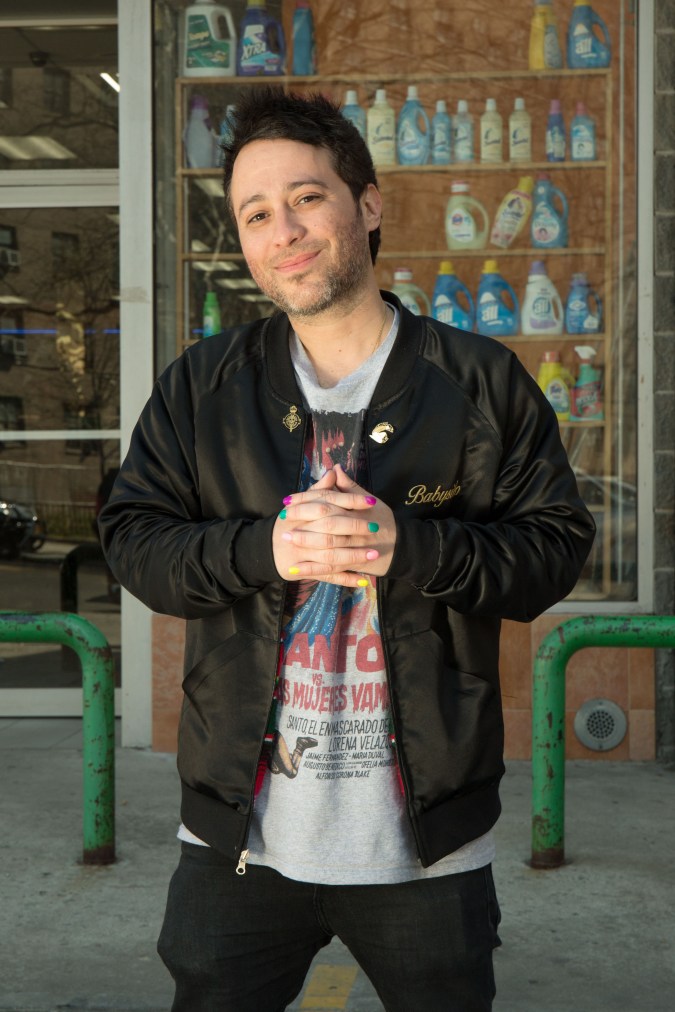
More than it directly addresses timely cultural or sociopolitical issues, though, the nine-track work is personal. It’s about his own rebuilding, his own resilience. The elated pop of “Mi Vida” is a jarring juxtaposition to the relationship strife related in the lyrics. The screaming matches, constant fighting, spitting in faces: the kind of toxicity that eats away at happiness and positivity, no doubt.
El Futuro is about his own rebuilding, his own resilience.
And no matter how arduously you work to overcome that kind of trauma, it can resurface at any time. You may think you’ve gotten past it, but oftentimes, our heads defy our hearts. After all the personal work that resulted from shaping El Futuro, AJ found himself utterly depressed last year. He was fortunate enough to get an extended visit from his mom, who still lives in Puerto Rico, in January. He wasn’t in the best mental state for another round of extensive touring, so he leaned on that in-person support and gave himself the best possible chance at figuring things out: He went a whole month sober.
“I just broke up with my girlfriend and I was going through hell,” he says. “I was going through a bad, bad depression, so having [my mom] here helped so, so much. I stopped drinking or doing drugs; I went one month sober and I started doing exercise. I needed that.”
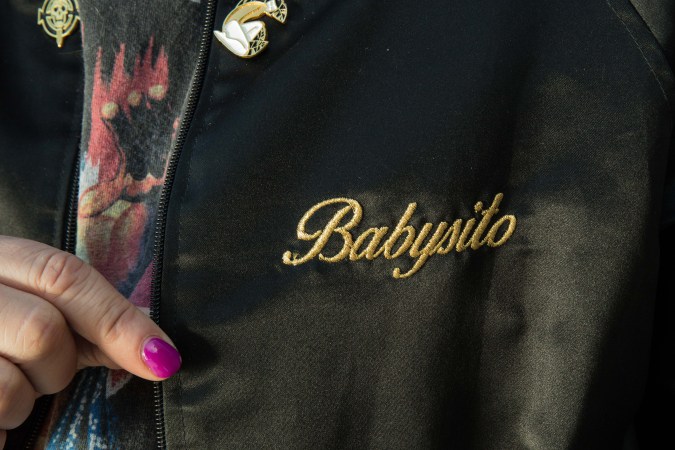
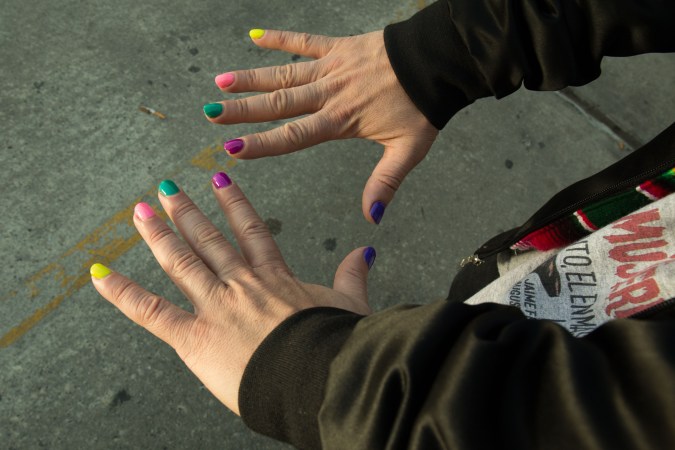
That hiatus gave him clarity, he says; this last U.S. tour was his best ever, because he was at his best physically and mentally. It wasn’t without snags — he didn’t bring his own drummer or bass player, both Mexican citizens, for fear of deportation. Instead he shared with touring mates Crocodiles. “Non-U.S. citizens, even with visas – they are deporting them. I just didn’t want to risk [it]…On this tour, we heard of so many bands [running into issues],” he says, citing Chilean band Trementina and the slew of other artists denied entry ahead of SXSW.
An outlook that champions happiness didn’t solve that problem, and it can’t fix any other result of Trump’s hateful administration. But that’s not what El Futuro is about. The positivity AJ is pushing isn’t a solution, but rather the thick skin you’ll need to find one.
AJ Dávila’s El Futuro is out on May 5 via Discos Panoram.
